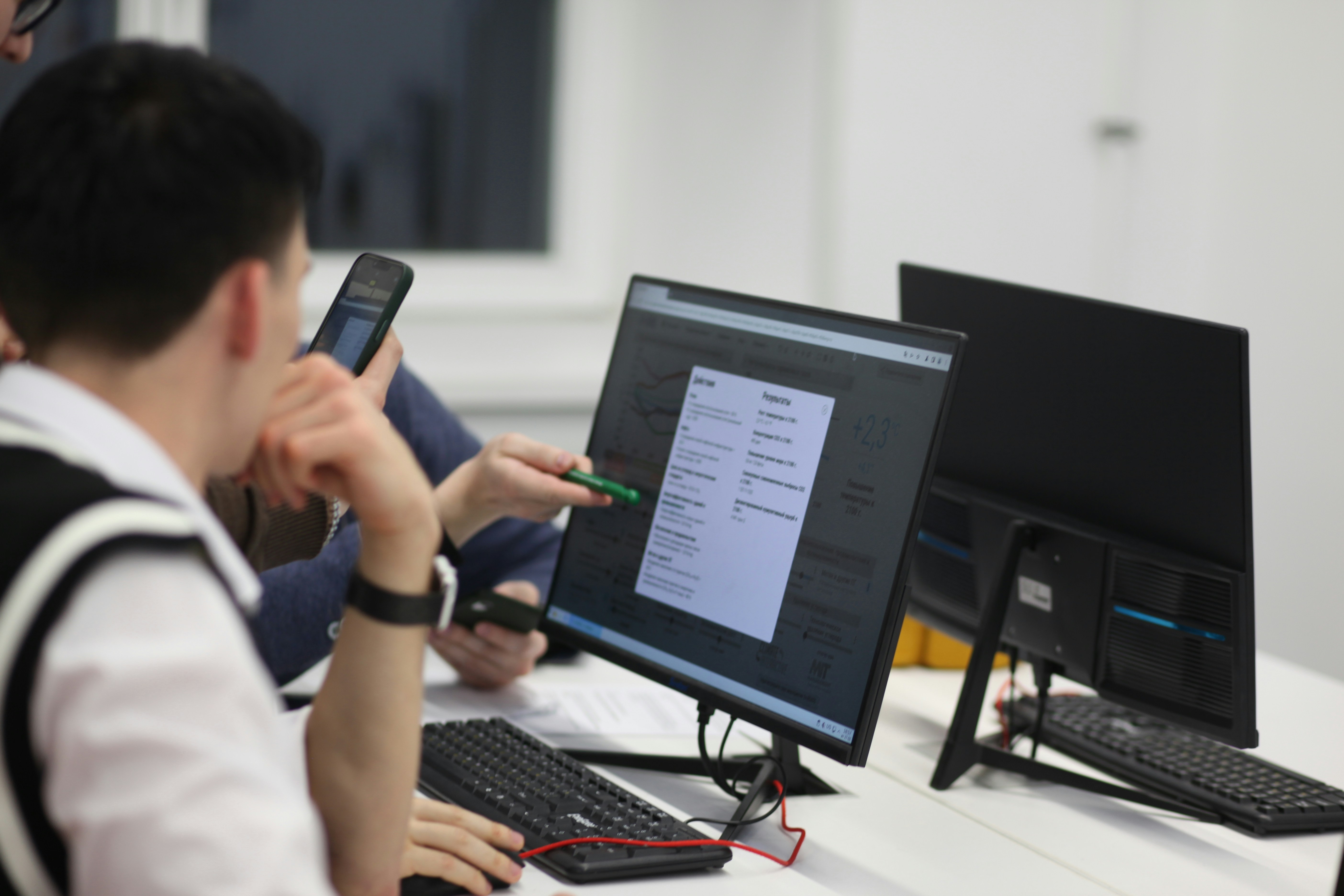Listen to this article
Study Skills
How do I prioritise my reading?


Study Skills
How do I prioritise my reading?


Study Skills
How do I prioritise my reading?



Summary
Prioritising your reading lists can make a difference in managing your workload, but how do you decide what is and what isn’t important?
Here are 5 ways to find out:
Focus on ‘essential’ and not ‘extra’ reading
Check if you should be reading chapters or books
Ask for guidance from your teacher or tutor
Ask yourself why you are reading something
Plan out your time
Summary
Prioritising your reading lists can make a difference in managing your workload, but how do you decide what is and what isn’t important?
Here are 5 ways to find out:
Focus on ‘essential’ and not ‘extra’ reading
Check if you should be reading chapters or books
Ask for guidance from your teacher or tutor
Ask yourself why you are reading something
Plan out your time
Read this article
2.5
Essential vs extra reading
Often reading lists are divided into ‘essential’ (or ‘recommended’), and ‘extra’ (or ‘further’) reading. This is as it is says, and you should focus your time on completing the essential reading first.
Extra reading is optional, and while it is always good to further your knowledge about a subject, when you are prioritising your time, this is a lower priority.
Chapters or books
Always double check your reading list to see if you should read a specific chapter rather than a whole book. It’s easy to make the mistake of thinking that you are expected to read 10 books rather than 10 chapters! If it is not clear, ask someone.
Ask your teacher or tutor
If the reading list does not make it clear what is essential reading, you can contact your teacher or tutor to ask for them to direct you to the most important items.
Be aware though, while it is always good to ask for help, be prepared to be given the answer ‘everything on the list is important’… If that happens, you need to…
Self-filter by asking why
If the reading list and teacher or tutor aren’t giving you what you need, you are going to need to work out what to prioritise yourself.
To do this, focus on why you are doing the reading - there should always be a purpose to your reading.
If it is for an essay, consider what points you may need for your arguments
If it is to be used in class discussion, look for points you may want to share
If it is to increase your knowledge on a topic, take some notes as they may be useful for assessments or discussions later on.
With the purpose clear, have in mind a set of questions you want answers to and then search for keywords in the text (if digital) or index (if printed) to determine whether something is relevant.
For research articles, start with introductions or abstracts and question again whether the content will answer your questions and is worth continuing to read.
Plan your time
Finally, calculate approximately how long it takes you to complete a set amount of reading, for example, five pages, and use this to work out roughly how much time it will take you to complete your reading.
If it works out that you have enough time to complete everything listed as essential or recommended, happy days! You can feel reassured that you haven’t left things too late.
If not, you need to filter (or re-filter) out the most important until you have the amount of reading that you can get through.
Read this article
2.5
Essential vs extra reading
Often reading lists are divided into ‘essential’ (or ‘recommended’), and ‘extra’ (or ‘further’) reading. This is as it is says, and you should focus your time on completing the essential reading first.
Extra reading is optional, and while it is always good to further your knowledge about a subject, when you are prioritising your time, this is a lower priority.
Chapters or books
Always double check your reading list to see if you should read a specific chapter rather than a whole book. It’s easy to make the mistake of thinking that you are expected to read 10 books rather than 10 chapters! If it is not clear, ask someone.
Ask your teacher or tutor
If the reading list does not make it clear what is essential reading, you can contact your teacher or tutor to ask for them to direct you to the most important items.
Be aware though, while it is always good to ask for help, be prepared to be given the answer ‘everything on the list is important’… If that happens, you need to…
Self-filter by asking why
If the reading list and teacher or tutor aren’t giving you what you need, you are going to need to work out what to prioritise yourself.
To do this, focus on why you are doing the reading - there should always be a purpose to your reading.
If it is for an essay, consider what points you may need for your arguments
If it is to be used in class discussion, look for points you may want to share
If it is to increase your knowledge on a topic, take some notes as they may be useful for assessments or discussions later on.
With the purpose clear, have in mind a set of questions you want answers to and then search for keywords in the text (if digital) or index (if printed) to determine whether something is relevant.
For research articles, start with introductions or abstracts and question again whether the content will answer your questions and is worth continuing to read.
Plan your time
Finally, calculate approximately how long it takes you to complete a set amount of reading, for example, five pages, and use this to work out roughly how much time it will take you to complete your reading.
If it works out that you have enough time to complete everything listed as essential or recommended, happy days! You can feel reassured that you haven’t left things too late.
If not, you need to filter (or re-filter) out the most important until you have the amount of reading that you can get through.

Written by Tim Jones

Written by Tim Jones
0:00/1:34
Summary
Prioritising your reading lists can make a difference in managing your workload, but how do you decide what is and what isn’t important?
Here are 5 ways to find out:
Focus on ‘essential’ and not ‘extra’ reading
Check if you should be reading chapters or books
Ask for guidance from your teacher or tutor
Ask yourself why you are reading something
Plan out your time
Read this article
Prioritising your reading lists can make a difference in managing your workload, but how do you decide what is and what isn’t important?
Here are 5 ways to find out:
Focus on ‘essential’ and not ‘extra’ reading
Check if you should be reading chapters or books
Ask for guidance from your teacher or tutor
Ask yourself why you are reading something
Plan out your time
Essential vs extra reading
Often reading lists are divided into ‘essential’ (or ‘recommended’), and ‘extra’ (or ‘further’) reading. This is as it is says, and you should focus your time on completing the essential reading first.
Extra reading is optional, and while it is always good to further your knowledge about a subject, when you are prioritising your time, this is a lower priority.
Chapters or books
Always double check your reading list to see if you should read a specific chapter rather than a whole book. It’s easy to make the mistake of thinking that you are expected to read 10 books rather than 10 chapters! If it is not clear, ask someone.
Ask your teacher or tutor
If the reading list does not make it clear what is essential reading, you can contact your teacher or tutor to ask for them to direct you to the most important items.
Be aware though, while it is always good to ask for help, be prepared to be given the answer ‘everything on the list is important’… If that happens, you need to…
Self-filter by asking why
If the reading list and teacher or tutor aren’t giving you what you need, you are going to need to work out what to prioritise yourself.
To do this, focus on why you are doing the reading - there should always be a purpose to your reading.
If it is for an essay, consider what points you may need for your arguments
If it is to be used in class discussion, look for points you may want to share
If it is to increase your knowledge on a topic, take some notes as they may be useful for assessments or discussions later on.
With the purpose clear, have in mind a set of questions you want answers to and then search for keywords in the text (if digital) or index (if printed) to determine whether something is relevant.
For research articles, start with introductions or abstracts and question again whether the content will answer your questions and is worth continuing to read.
Plan your time
Finally, calculate approximately how long it takes you to complete a set amount of reading, for example, five pages, and use this to work out roughly how much time it will take you to complete your reading.
If it works out that you have enough time to complete everything listed as essential or recommended, happy days! You can feel reassured that you haven’t left things too late.
If not, you need to filter (or re-filter) out the most important until you have the amount of reading that you can get through.

Written by Tim Jones
Prior to co-founding Booost Education, Tim previously worked with neurodivergent and disabled students at various universities and trained as an assistive technology consultant with AbilityNet.

Written by Tim Jones
Prior to co-founding Booost Education, Tim previously worked with neurodivergent and disabled students at various universities and trained as an assistive technology consultant with AbilityNet.




